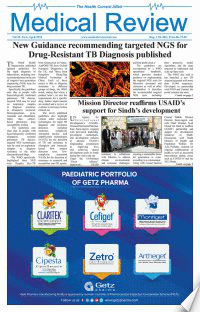The Islamic Advisory Group launched a Training Manual titled ‘Polio Eradication, Mother and Child Health and Immunization’. According to the World Health Organization (WHO) Pakistan, the manual provides practical guidance on how to engage local communities to advocate for vaccination as well as other maternal and child healthcare issues.
The launching of the Training Manual was carried out during the group’s 4th Annual Meeting that convened at the headquarters of Al Azhar Al Sharif.
During the launch, the Imam expressed his happiness to see the progress achieved to eradicate polio in a satisfactory and reassuring manner, saying that as Muslims we shouldn’t still be discussing a subject that has already been settled a long time ago. This is a situation that has resulted from the misunderstanding of our Qur’an and religion and its teachings.
He said Al Azhar Al Sharif’s continued support and announced that the Al Azhar would translate the training manual into 20 languages.
Hatem El Khodary delivered the address of WHO Acting Regional Director for the Eastern Mediterranean, Dr. Jaouad Mahjour, in which he commended the work of the IAG and its national affiliates in Afghanistan and Pakistan in supporting the efforts of the national governments and their implementing partners. Islam strongly advocates the preservation and protection of children’s health and well-being. “Countless prominent Islamic scholars, including those gathered under the IAG banner, have repeatedly confirmed this and have urged Muslim parents and influencers to ensure the immunization of all children.
Dr. Abdelqahir Qamar, Director of Fatwa Department at the Jeddah-based International Islamic Fiqh Academy (IIFA), affirmed that the work of the IAG to protect the lives of children follows what Islam commands its followers.
The launch of the training manual follows IAG’s efforts to prepare students of religious studies at key universities in predominantly Muslim countries to act as advocates for critical health initiatives particularly in high-risk areas where marginalised and underserved populations reside. As future religious leaders and scholars the students will be well placed within their local communities to promote healthy behavior and dispel rumors and misinformation that hamper the work of vaccination teams and deprive their community members of protection against polio and other vaccine preventable diseases.


